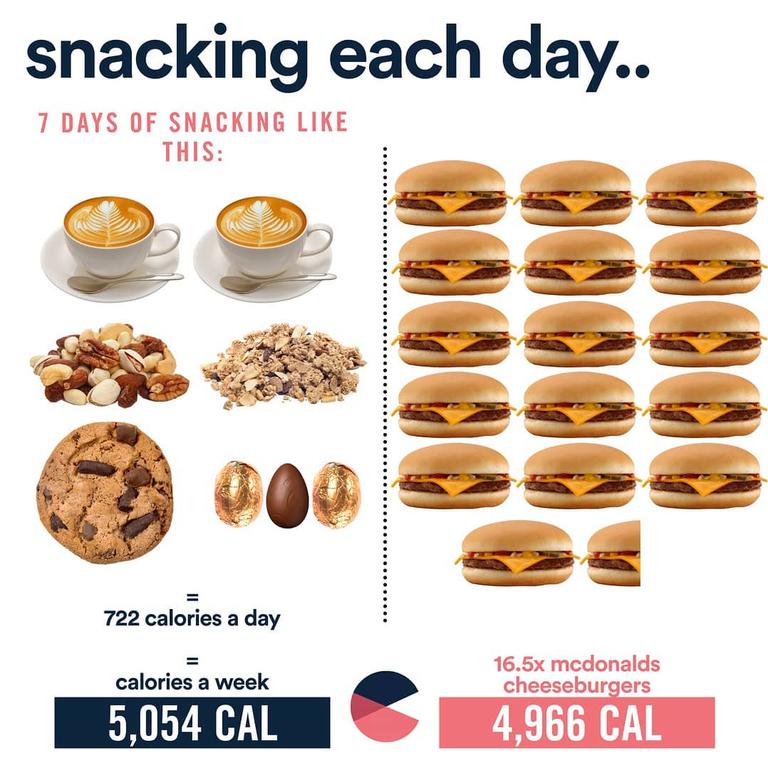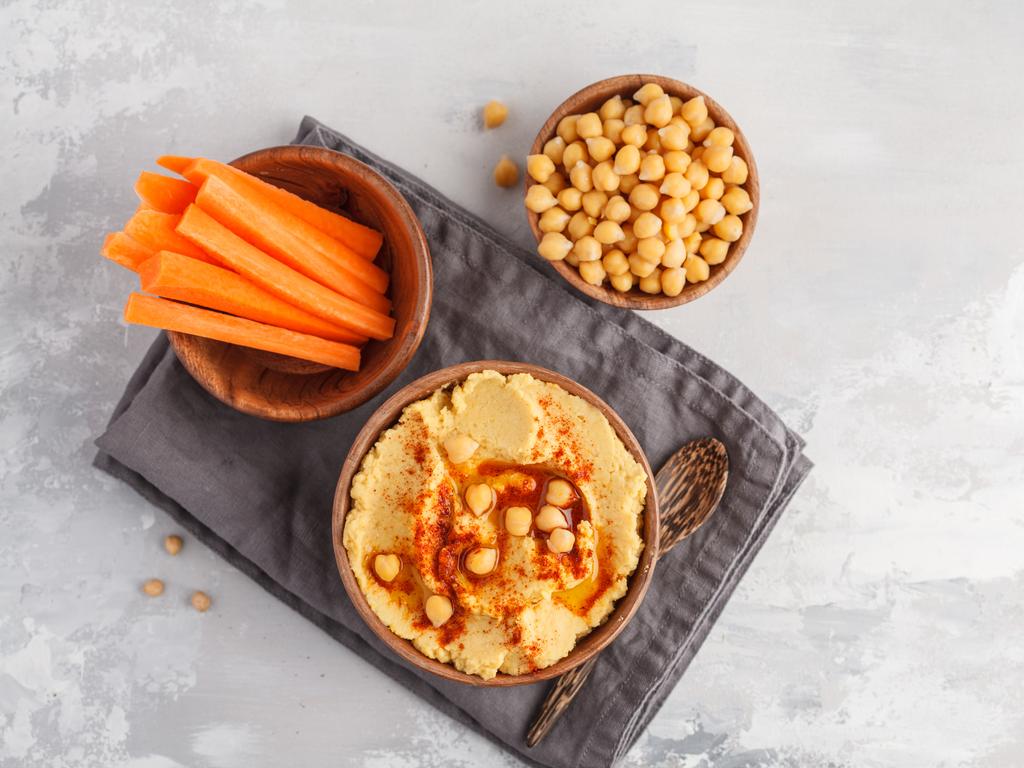Coronavirus lockdown: Photo shows why you shouldn't snack at home
With more of us working from home than ever before, reaching into the fridge has become so much easier – but this Instagram post shows why you should think twice about snacking.

With more of us working from home thanks to the coronavirus pandemic, reaching for a sweet treat from the fridge or pantry just got a whole lot easier.
But even just a few extra coffees and snacks during the day can add up if you're not careful, a recent Instagram post has demonstrated.
Weight loss program Equalution shared a post last week showing how drinking two extra coffees and snacking on food like nuts, chocolate and biscuits could make a serious difference to your daily food intake.
They estimated that the snacking could come to 722 extra calories a day, or 5054 a week, which is more than 16.5 McDonald's cheeseburgers (4966 calories) – ouch.

RELATED: Follow the latest coronavirus updates
WHY WORKING FROM HOME MAKES SNACKING MORE TEMPTING
According to naturopath and nurse Madeline Calfas the main reason many of us are snacking more working from home is boredom.
“It is much easier when you are at the office and are surrounded by people, meetings, work assignments to keep busy - so busy that often you may not even find the time to eat,” she told news.com.au.
“When you are home though, you usually don't have the same level of activity going on. Just like it is easy to stay in your pjs all day, you can have a Zoom meeting and still be snacking in the background when no one can see (or hear).”
Our daily routines are also different and being at home means we can snack without “fear of judgment”, Ms Calfas said.
RELATED: How ‘flattening the curve’ saves lives

IS IT OK TO SNACK?
There are pros and cons when it comes to snacking.
While snacking often can maintain energy and blood sugar levels it could also led to a “grazing style of eating” which could cause you to overeat.
“By not snacking in between meals, you are allowing your body to retrain the way that it interprets perceived hunger, and only fuelling when you are actually hungry,” Ms Calfas said.
Rather than snacking, she recommended eating the right kind of foods during meal times to help you stay fuller for longer and asking yourself if the snack you’re craving is hunger or habit based.
“Ideally, you want to give your body a minimum of five hours between the end of your last meal and the start of the next. We want to give your digestive system as much time as possible for it to finish its job,” Ms Calfas said.
“If you find that you do still need to snack, drink some water or herbal tea to make sure you aren't confusing thirst for hunger … (if you're still hungry) it could be time for you to reassess your diet and make sure that you are having meals that are macro-balanced. Protein, fibre and fat will all help your body to feel full for longer.”

RELATED: Prepare your home for a coronavirus outbreak
HOW TO SNACK RIGHT
If you do snack, Ms Calfas recommended either a small handful or nuts, cherry tomatoes, carrot or celery sticks as they will help curb any hunger without later suffering from a sugar crash.
“If you absolutely must snack, then high fibre, low sugar and protein-dense foods are ideal as they will keep you feeling full and not elevate your blood sugar levels rapidly,” she said.
You should avoid foods like “chips, biscuits, muesli bars, muffins, chocolate” as they can have the opposite effect.
“Essentially any processed foods are the types of foods you should stay away from, as they often have high hidden sugar content, which will leave you feeling ‘hungry’ again in about 15 minutes,” Ms Calfas said.



